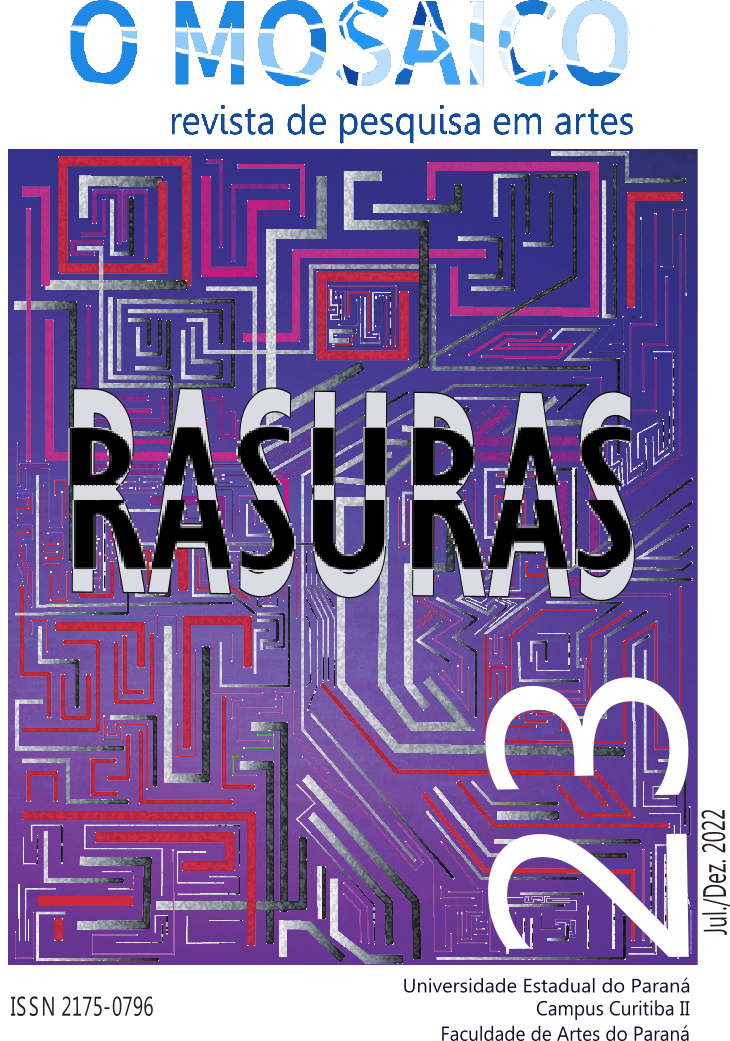Corpo, cognição e tecnologia: as potencialidades no processo de criação em dança remota no UM
DOI:
https://doi.org/10.33871/21750769.2022.15.1.6982Keywords:
Dança; Corpo-ambiente; Cognição; Tecnologia, Ambiente remoto.Abstract
The article in question discusses the relationships of body, cognition and technology and how these relationships were reflected in the process of creation and improvisation in dance, in the year 2021, within the extension group UM – Núcleo de Pesquisa Artística em Dança at Unespar. As a theoretical contribution, the text briefly presents important concepts about enation NOE (2004) to better understand the processes of perception; the Corpomídia theory (KATZ; GREINER, 2005) for understanding the active role of the body in the acquisition of knowledge; as well as the ongoing relationship with the environment in this process. It should also be noted that this process is crossed by the relationship between technology and cognition (CLARK, 2003, 2009) (SIEDLER, 2016). Understanding the body as a proposer (SILVA, 2013), which relates to the environment and technological devices, the author's perceptions about the experience in the process of creation in dance throughout the year 2021, in the proposed remote meetings, are presented. by the UM.
Downloads
Downloads
Published
How to Cite
Issue
Section
License
Copyright (c) 2022 O Mosaico

This work is licensed under a Creative Commons Attribution-NonCommercial-ShareAlike 4.0 International License.
The authors retain the copyright, when licensing their production in the journal O Mosaico, which is licensed under a Creative Commons license. When submitting the work, and upon acceptance, the author assigns his/her copyright for publication in the journal. Readers can download, print and use the articles published in the journal, as long as there is always an explicit mention to the author (s) and to the O Mosaico, and no changes to the original work are allowed. When submitting an article to the journal O Mosaico and after accepting it for publication, the authors allow, without remuneration, to pass the following rights to the journal: the first edition rights and the authorization for the editorial team to transfer, according to their judgment, this article and its meta data to indexing and reference services.

